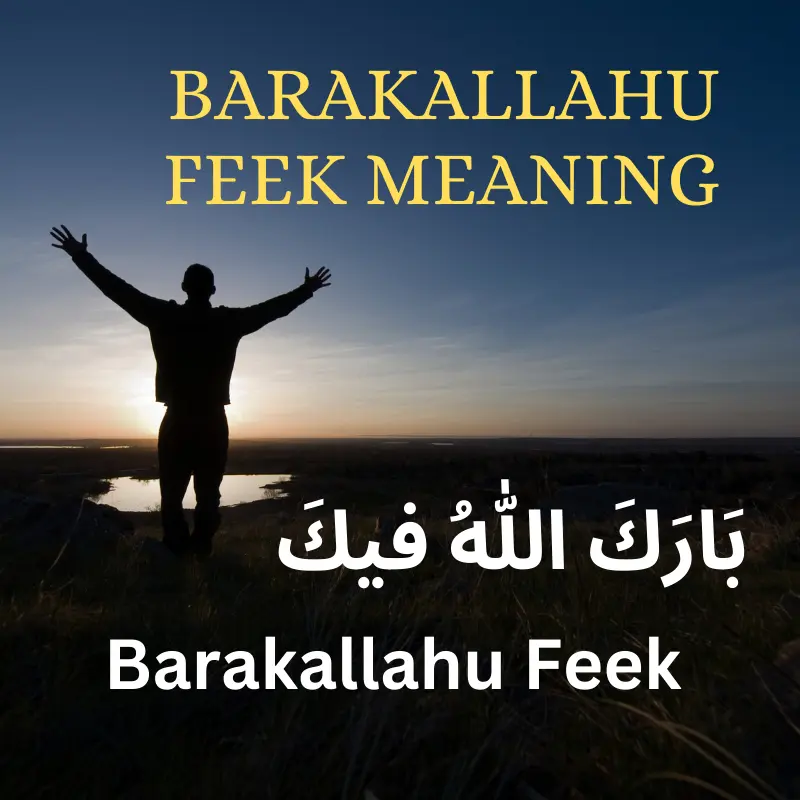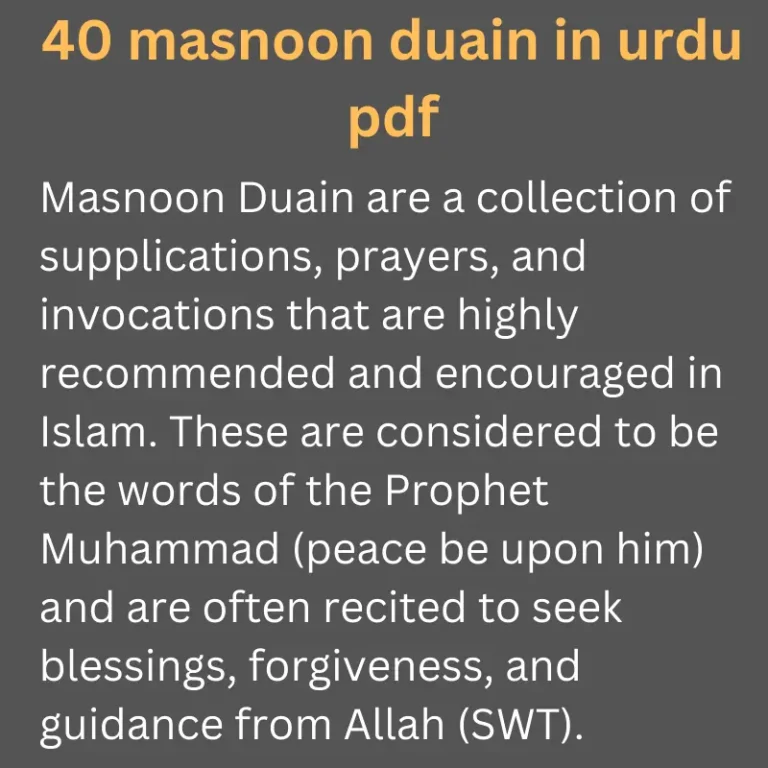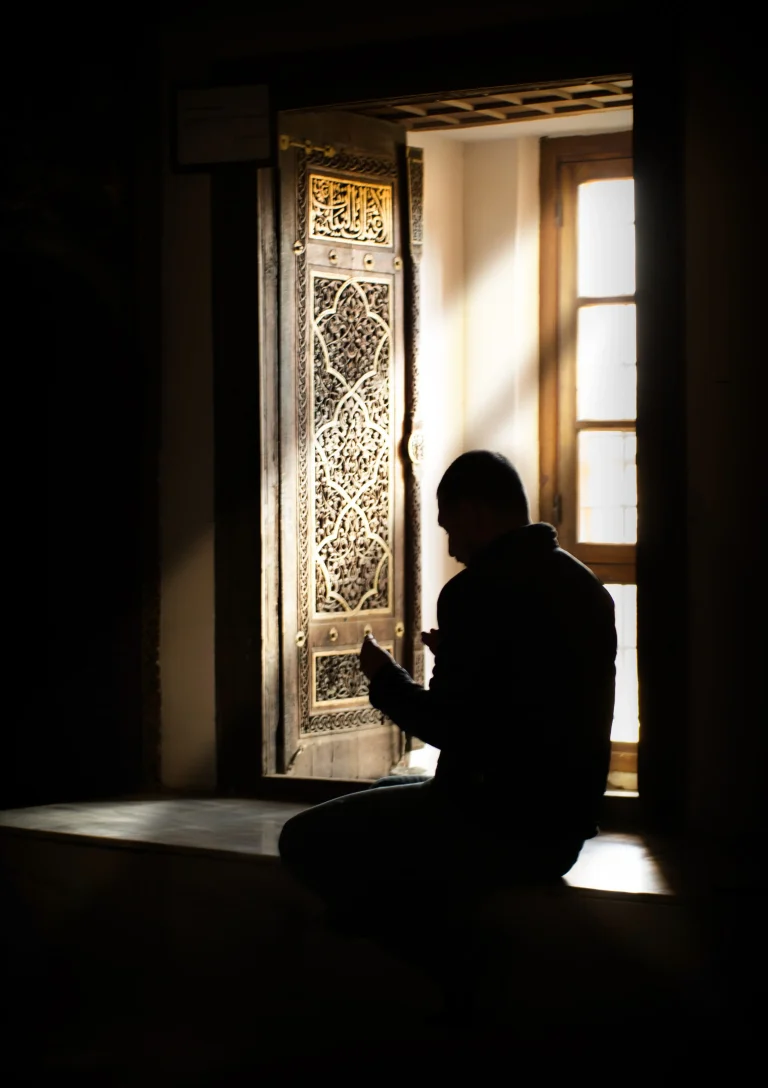Barakallahu Feek Meaning, in Arabic, When To say & Its reply
In the beautiful tapestry of the Arabic language, phrases and expressions hold profound meanings and cultural significance. “Barakallahu Feek” is one such phrase that carries a heartfelt message of well-wishing. This article delves into the meaning of “Barakallahu Feek” in Arabic, when it is appropriately used, and the response it invokes.
Barakallahu Feekum in Arabic
بَارَكَ اللهُ فيكَ
Barakallahu Feek Meaning
“Barakallahu Feek” is an Arabic phrase that is often used to express blessings and gratitude. It translates to “May Allah bless you” or “May Allah bestow His blessings upon you” in English. It’s a way of showing appreciation and asking for Allah’s blessings upon someone.
Barak Allahu Feek Pronunciation
Hadith About Barak Allah Fik
It was narrated that Al-Hasan said:
“Aqil bin Abi Talib married a woman from Banu Jusham, and it was said to him: ‘May you live in harmony and have many sons.’ He said: ‘Say what the Messenger of Allah said: Barak Allahu fikum, wa baraka lakum. (May Allah bless you and bestow blessings upon you.)’
“Whoever does not thank people, does not thank Allah.” (Sunan Abi Dawood)
This hadith highlights the significance of expressing gratitude towards others, as it is intertwined with gratitude towards Allah.
When Do We Use BarakAllah Feekum?
The phrase “BarakAllah feekum” (بارك الله فيكم) is an Arabic expression that is commonly used in Islamic cultures. It is often used to convey blessings, well-wishes, or gratitude. The phrase is made up of two parts:
- “BarakAllah”: This part of the phrase means “May Allah bless.” It’s a way of asking for Allah’s blessings to be bestowed upon someone or something.
- “Feekum”: This part of the phrase means “upon you all” or “upon all of you.” It’s a plural form of the word “fik” which means “you” in Arabic.
So, when you say “BarakAllah feekum,” you are essentially saying “May Allah bless you all” or “May Allah’s blessings be upon all of you.” It’s a polite and respectful way to convey good wishes or blessings to others, often used in response to someone’s kind actions or expressions.
For example, if someone does something nice for you, you might respond with “BarakAllah feekum” to show your appreciation and wish blessings upon them. It’s also used as a general expression of gratitude or goodwill.
Common Spelling:
- Barak allahu Feekum
- Barak Allah Feek
- Baraka Allahu Feeka
- Barakallahu Fik
How to Reply BarakAllahu Feek?
in response to the phrase “Barak Allahu Feek” (بارك الله فيك), you can reply with Wa Feeka barakallah وَفيك بَارَكَ اللهُ .
“Ameen”: This is a common response that signifies you are accepting and acknowledging the blessing being conveyed. It’s like saying “May it be so” or “I accept the blessing.”
- “JazakAllah Khair”: This means “May Allah reward you with goodness” or “Thank you.” It’s a way of expressing gratitude for the blessings and well-wishes.
- “Thank you”: You can simply respond with a straightforward “Thank you” to acknowledge and appreciate the blessing being extended to you.
- “And you too”: This response reflects the reciprocity of blessings. You’re essentially saying “May Allah bless you too.”
- “May Allah bless you as well”: This response mirrors the original sentiment and expresses your wish for blessings upon the person who conveyed the blessing to you.
What does “Barakallahu Feek” mean?
“Barakallahu Feek” translates to “May Allah bless you.” It’s an expression of goodwill and blessings in Arabic.
When should I use “Barakallahu Feek”?
Use it when you want to convey blessings, gratitude, or encouragement. It’s suitable for various situations, from everyday interactions to special occasions.








